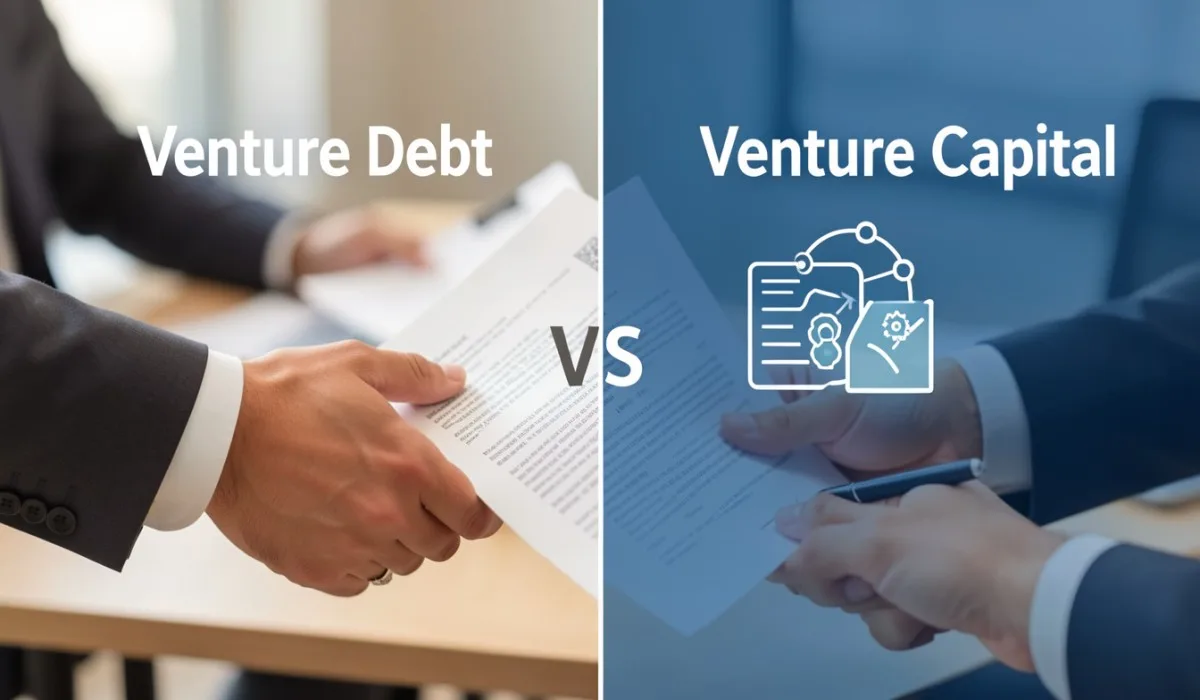Y Combinator's Tom Blomfield says it's normally on the grounds that your group isn't adequately great
"At the point when a financial backer passes on you, they won't let you know the genuine explanation," said Tom Blomfield, bunch accomplice at Y Combinator. "At seed stage nobody knows, honestly, what will fucking occur. What's to come is so dubious. All they're judging is the apparent nature of the organizer. At the point when they pass, what they're thinking in their mind is that this individual isn't sufficiently amazing. Not considerable. Not brilliant enough. Not diligent enough. Anything it is, 'I'm not persuaded this individual is a champ.' And they won't ever express that to you, since you would lash out. And afterward you could at absolutely no point ever need to contribute them the future."
It would be ideal for blomfield to be aware — he was the organizer behind Monzo Bank, one of the most brilliant sparkling stars in the U.K. startup sky. For the beyond three years or something like that, he's been an accomplice at Y Combinator. He went along with me in front of an audience at TechCrunch Beginning phase in Boston on Thursday, in a meeting named "How to Fund-raise and Come Out Alive." There were no beaten around the bush or pulled punches: just genuine talk and a periodic F-bomb streamed.
Understand the power law of investor returns
At the core of the investment model lies the power law of profits, an idea that each organizer should handle to explore the raising money scene successfully. In synopsis: few exceptionally fruitful speculations will produce most of a VC company's profits, counterbalancing the misfortunes from the numerous ventures that neglect to take off.
For VCs, this implies a persistent spotlight on distinguishing and backing those uncommon new companies with the potential for 100x to 1,000x returns. As a pioneer, your test is to persuade financial backers that your startup can possibly be one of those exceptions, regardless of whether the likelihood of making such monstrous progress appears to be essentially as low as 1%.
Showing this outsized potential requires a convincing vision, a profound comprehension of your market, and a make way to quick development. Originators should illustrate a future where their startup has caught a huge piece of an enormous and developing business sector, with a plan of action that can scale proficiently and productively.
"Each VC, while they're taking a gander at your organization, isn't asking, 'Goodness, this organizer's approached me to contribute at $5 million. Will it get to $10 million or $20 million?' For a VC, that is on par with disappointment," said Blomfield. "Batting singles is in a real sense indistinguishable from zeros for them. It doesn't make at least some difference in any capacity. The main thing that makes at least some difference for VC returns is grand slams, is the 100x return, the 1,000x return."
VCs are searching for pioneers who can back up their cases with information, foothold, and a profound comprehension of their industry. This implies plainly getting a handle on your key measurements, for example, client securing costs, lifetime worth, and development rates, and articulating how these measurements will develop as you scale.
The importance of addressable market
One intermediary for power regulation, is the size of your addressable market: It's urgent to have a reasonable comprehension of your complete addressable market (Hat) and to have the option to explain this to financial backers in a convincing manner. Your Hat addresses the complete income opportunity accessible to your startup if you somehow managed to catch 100 percent of your objective market. It's a hypothetical roof on your expected development, and it's a key metric that VCs use to assess the likely size of your business.
While introducing your Hat to financial backers, be reasonable and back up your appraisals with information and exploration. VCs are profoundly gifted at assessing market potential, and they'll rapidly see through any endeavors to expand or misrepresent your market size. All things being equal, center around introducing an unmistakable and convincing case for why your market is appealing, how you intend to catch a critical portion of it, and what special benefits your startup offers that would be useful.
Influence is the situation
Raising funding isn't just about pitching your startup to financial backers and remaining optimistic. An essential cycle includes making influence and contest among financial backers to get the most ideal terms for your organization.
"YC is incredibly, great at [generating] influence. We fundamentally gather a lot of the best organizations on the planet, we put them through a program, and toward the end, we have a demo day where the world's best financial backers essentially run a bartering cycle to attempt to put resources into the organizations," Blomfield summed up. "What's more, whether you're doing a gas pedal, attempting to make what is going on, that sort of high influence circumstance where you have various financial backers offering for your organization, it's actually the main way you get extraordinary venture results. YC simply makes that for you. It's extremely, valuable."
Regardless of whether you're not piece of a gas pedal program, there are still ways of making contest and influence among financial backers. One technique is to run a tight raising support process, setting a reasonable timetable for when you'll go with a choice and imparting this to financial backers forthright. This makes a need to keep moving and shortage, as financial backers realize they have a restricted deal window.
Another strategy is to be vital about the request in which you meet with financial backers. Begin with financial backers who are probably going to be more distrustful or have a more drawn out dynamic interaction, and afterward continue on toward the individuals who are bound to rapidly move. This permits you to gather speed and make a feeling of certainty around your raise support.
Angels invest with their heart
Blomfield likewise examined how private backers frequently have various inspirations and rubrics for money management than proficient financial backers: They generally contribute at a higher rate than VCs, especially for beginning phase bargains. This is on the grounds that heavenly messengers normally put away their own cash and are bound to be influenced by a convincing pioneer or vision, regardless of whether the business is still in its beginning phases.
One more key benefit of working with private backers is that they can frequently give acquaintances with different financial backers and assist you with gathering speed in your raising support endeavors. Numerous fruitful raising support adjusts start with a couple of key private backers coming ready, which then, at that point, draws in light of a legitimate concern for bigger VCs.
Blomfield shared the case of a round that met up leisurely; more than 180 gatherings and 4.5 months of hard trudge.
"This is really the truth of most adjusts that are done today: You read about the blockbuster round in TechCrunch. You know, 'I raised $100 million from Sequoia sort of rounds.' Yet truly, TechCrunch doesn't compose such a huge amount about the 'I ground it out for four and a half months lastly shut my round in the wake of meeting 190 financial backers,'" Blomfield said. "As a matter of fact, this is the way most adjusts finish. What's more, a ton of it relies upon private supporters."
Investor feedback can be misleading
One of the most difficult parts of the gathering pledges process for organizers is exploring the input they get from financial backers. While it's normal to search out and cautiously consider any guidance or analysis from likely supporters, it's essential to perceive that financial backer criticism can frequently be deceiving or counterproductive.
Blomfield makes sense of that financial backers will frequently pass on an arrangement because of reasons they don't completely unveil to the organizer. They might refer to worries about the market, the item, or the group, however these are many times simply shallow defenses for a more key absence of conviction or fit with their speculation proposal.
"The focus point from this is the point at which a financial backer provides you with a lot of input on your seed-stage pitch, a few pioneers are like, 'Wow, they said my go-to-showcase isn't sufficiently grown. Better proceed to do that.' However it misleads individuals, in light of the fact that the reasons are for the most part horse crap," says Blomfield. "You could wind up turning your entire organization system in light of some arbitrary criticism that a financial backer gave you, when really they're thinking, 'I don't think the pioneers are sufficient,' which is an extreme truth they won't ever tell you."
Financial backers are not right all the time. Since a financial backer has passed on your arrangement doesn't be guaranteed to imply that your startup is imperfect or ailing in potential. A large number of the best organizations in history have been disregarded by endless financial backers prior to seeing as the right fit.
Do your due diligence on investors
The financial backers you welcome on board will give the capital you really want to develop and will act as key accomplices and counselors as you explore the difficulties of scaling your business. Picking some unacceptable financial backers can prompt skewed motivations, clashes, and, surprisingly, the disappointment of your organization. A ton of that is avoidable by taking care of any outstanding concerns on expected financial backers prior to marking any arrangements. This implies looking past the size of their asset or the names in their portfolio and truly diving into their standing, history, and way to deal with working with pioneers.
"Eighty-odd percent of financial backers give you cash. The cash is something similar. Also, you return to maintaining your business. Furthermore, you need to sort it out. I think, sadly, there are around 15% to 20% of financial backers who are effectively horrendous," Blomfield said. "They give you cash, and afterward they attempt to assist, and they mess stuff up. They are really difficult, or push you to turn the business in an insane bearing, or push you to spend the cash they've recently given you to enlist quicker."
One critical recommendation from Blomfield is to talk with organizers behind organizations that poor person performed well inside a financial backer's portfolio. While it's normal for financial backers to promote their fruitful speculations, you can frequently learn more by inspecting how they act when things aren't working out as expected.














